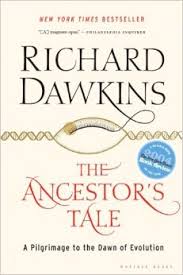Jerrodd, Jerrodine, and Jerrodette I and II watched the starry picture in the visiplate change as the passage through hyperspace was completed in its non-time lapse. At once, the even powdering of stars gave way to the predominance of a single bright marble-disk, centered.
“That’s X-23,” said Jerrodd confidently. His thin hands clamped tightly behind his back and the knuckles whitened.
The little Jerrodettes, both girls, had experienced the hyperspace passage for the first time in their lives and were self-conscious over the momentary sensation of inside-outness. They buried their giggles and chased one another wildly about their mother, screaming, “We’ve reached X-23 — we’ve reached X-23 — we’ve —-“
“Quiet, children,” said Jerrodine sharply. “Are you sure, Jerrodd?”
“What is there to be but sure?” asked Jerrodd, glancing up at the bulge of featureless metal just under the ceiling. It ran the length of the room, disappearing through the wall at either end. It was as long as the ship.
Jerrodd scarcely knew a thing about the thick rod of metal except that it was called a Microvac, that one asked it questions if one wished; that if one did not it still had its task of guiding the ship to a preordered destination; of feeding on energies from the various Sub-galactic Power Stations; of computing the equations for the hyperspatial jumps.
Jerrodd and his family had only to wait and live in the comfortable residence quarters of the ship.
Someone had once told Jerrodd that the “ac” at the end of “Microvac” stood for “analog computer” in ancient English, but he was on the edge of forgetting even that.
Jerrodine’s eyes were moist as she watched the visiplate. “I can’t help it. I feel funny about leaving Earth.”
“Why, for Pete’s sake?” demanded Jerrodd. “We had nothing there. We’ll have everything on X-23. You won’t be alone. You won’t be a pioneer. There are over a million people on the planet already. Good Lord, our great grandchildren will be looking for new worlds because X-23 will be overcrowded.”
Then, after a reflective pause, “I tell you, it’s a lucky thing the computers worked out interstellar travel the way the race is growing.”
“I know, I know,” said Jerrodine miserably.
Jerrodette I said promptly, “Our Microvac is the best Microvac in the world.”
“I think so, too,” said Jerrodd, tousling her hair.
It was a nice feeling to have a Microvac of your own and Jerrodd was glad he was part of his generation and no other. In his father’s youth, the only computers had been tremendous machines taking up a hundred square miles of land. There was only one to a planet. Planetary ACs they were called. They had been growing in size steadily for a thousand years and then, all at once, came refinement. In place of transistors had come molecular valves so that even the largest Planetary AC could be put into a space only half the volume of a spaceship.
Jerrodd felt uplifted, as he always did when he thought that his own personal Microvac was many times more complicated than the ancient and primitive Multivac that had first tamed the Sun, and almost as complicated as Earth’s Planetary AC (the largest) that had first solved the problem of hyperspatial travel and had made trips to the stars possible.
“So many stars, so many planets,” sighed Jerrodine, busy with her own thoughts. “I suppose families will be going out to new planets forever, the way we are now.”
“Not forever,” said Jerrodd, with a smile. “It will all stop someday, but not for billions of years. Many billions. Even the stars run down, you know. Entropy must increase.”
“What’s entropy, daddy?” shrilled Jerrodette II.
“Entropy, little sweet, is just a word which means the amount of running-down of the universe. Everything runs down, you know, like your little walkie-talkie robot, remember?”
“Can’t you just put in a new power-unit, like with my robot?”
The stars are the power-units, dear. Once they’re gone, there are no more power-units.”
Jerrodette I at once set up a howl. “Don’t let them, daddy. Don’t let the stars run down.”
“Now look what you’ve done,” whispered Jerrodine, exasperated.
“How was I to know it would frighten them?” Jerrodd whispered back.
“Ask the Microvac,” wailed Jerrodette I. “Ask him how to turn the stars on again.”
“Go ahead,” said Jerrodine. “It will quiet them down.” (Jerrodette II was beginning to cry, also.)
Jerrodd shrugged. “Now, now, honeys. I’ll ask Microvac. Don’t worry, he’ll tell us.”
He asked the Microvac, adding quickly, “Print the answer.”
Jerrodd cupped the strip of thin cellufilm and said cheerfully, “See now, the Microvac says it will take care of everything when the time comes so don’t worry.”
Jerrodine said, “and now children, it’s time for bed. We’ll be in our new home soon.”
Jerrodd read the words on the cellufilm again before destroying it: INSUFFICIENT DATA FOR MEANINGFUL ANSWER.
He shrugged and looked at the visiplate. X-23 was just ahead.








